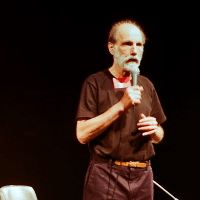-
The political economy of intellectual property
The dramatic expansion of intellectual property rights represents a new stage in commodification that threatens to make virtually everything bad about capitalism even worse.
-
Class, Psychology, and Capitalism
A young veteran was just arrested for murdering homeless people in Los Angeles. Regardless whether he is actually guilty, a large number of terrible acts have been committed by returning veterans traumatized from the war. None of the studies of which I’m aware accounts for such costs (including the cost of imprisoning them) in the […]
-
Is United States Government a Paper Tiger?
In a 1956 interview with Anna Louise Strong, Mao described American imperialism as a paper tiger. Of course, the military strength of the United States is unparalleled, especially because this country accounts for about half of worldwide military spending. Even so, the last three significant wars have shown that the country has been unable to […]
-
Decoding Economic Ideology
Introduction Molière’s 1670 his play, The Bourgeois Gentleman, presented before the court of Louis XIV, mocked a foolish, social-climbing merchant. In his effort to remake himself, the merchant takes lessons to help him pass as an aristocrat. In a basic lesson on language, he is both surprised and delighted to learn he had been speaking […]
-
How to Think about the Crisis
The Financial Crisis Goes beyond Finance The crisis today in mortgage lending does not come as a surprise to me. I discussed the build up to the crisis in a book published last year, The Confiscation of American Prosperity.1 The book describes more than three decades of concerted efforts to restructure the economy to respond […]
-
An Alternative Bailout Plan
Instead of giving a couple trillion dollars to the financial institutions, how about instituting a financial holiday — something like what FDR did — and using the trillions of dollars to create infrastructure and affordable housing? We could also raise some more money by ending the wars and cutting back military spending. Some of the […]
-
Quick Thoughts on Carbon Sequestration
How do we mitigate climate change? A fashionable suggestion is technologically intensive carbon sequestration. That, however, is an excessively expensive and probably technically impossible method of capturing significant amounts of carbon. Another popular suggestion for sequestering carbon is planting trees. A more traditional method — building up the soil — which is better for the […]
-
The Closing of the University Commons
The closing of the university commons should come as no surprise. Instead, we might do better to consider the brief opening in the 1960s as a dramatic break with a less pleasant but long-standing tradition — one in which higher education in the United States was a site of intolerance rather than openness. Historically, the […]
-
What’s Wrong with Tort Reform?
MANUFACTURING DISCONTENT: The Trap of Individualism in Corporate Society by Michael PerelmanBUY THIS BOOK Given the absence of criminal penalties for corporate misbehavior, society needs an alternative means to protect itself against corporate abuses. Ideally, effective regulation might help to keep corporations in line, but the regulatory structure in the United States is embarrassingly weak. […]
-
The Social Meaning of Pensions
MANUFACTURING DISCONTENT: The Trap of Individualism in Corporate Society by Michael PerelmanBUY THIS BOOK Pensions offer a wonderful example of the perverse phenomenon of the corporate sector winning support by taking actions that harm individuals. Between 1979 and 1997, the share of employees with defined benefit plans — i.e., plans that promise a specific level […]
-
In Patents We Trust: How the U.S. Government Learned to Stop Worrying about Monopoly and Love Intellectual Property
Today, patents supposedly exist to provide an incentive for new discoveries. Patents had a different purpose at their origin. When the Venetians invented what today we would call intellectual property in the fifteenth century, governments openly treated it as an element of state power. Workers could enjoy monopolistic privileges only if they continued to strengthen […]
-
Flexibility for Whom?
MANUFACTURING DISCONTENT: The Trap of Individualism in Corporate Society by Michael PerelmanBUY THIS BOOK Imagining the workplace as a network of voluntary relationships has dire political implications. For example, in 1997, a California state agency, the Industrial Welfare Commission, bowing to employer pressure voted to reinterpret an overtime regulation dating back to 1918. For almost […]
-
Voluntary Slavery
Although the widely celebrated consumer sovereignty allows people to choose whether to consume Coke or Pepsi, nobody could even dream of suggesting that workers can act as sovereign individuals within their place of employment. Ideologists mouth comforting platitudes that depict people as sovereign individuals in their role as consumers, but obviously ultimate control of the […]

